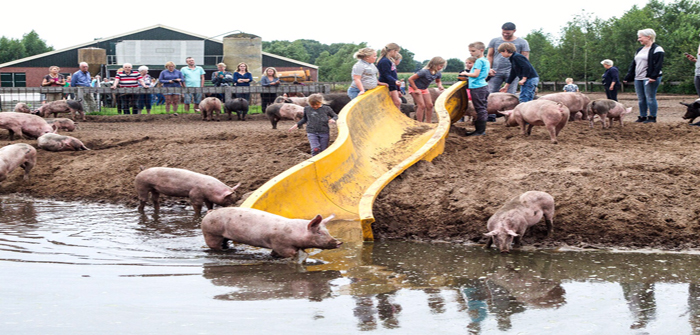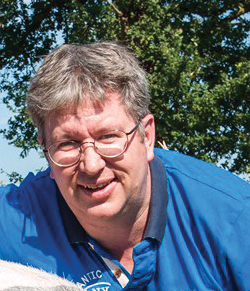In recent weeks, I have seen various aspects of agriculture represented through my Nuffield studies and industry meetings, writes Erik Stegink (pictured).
At first glance, it appears clear – we are not wanted as farmers in the Netherlands. There are too many checks, various action groups make us look like criminals and ill-considered policy makes us vulnerable. Manure frauds, Fipronil suppliers, arson in our stables – you name it, everything is thrown at us as producers. Are we doing something wrong?
In the bubble in which we live here in the Netherlands, it seems that we have a lot of problems and producers are being turned away. An ever-growing group of entrepreneurs, some of them without a successor, are choosing to get out of the agriculture business. Yet, for me, there is still hope on the horizon. I sometimes switch to the so- called helicopter view (take a look at your own bubble).
Partly because of my Nuffield trips that have taken me to many other countries, I see that producers around the world face so many risks that are so much more difficult on many fronts than ours.
They sometimes have poor weather conditions, no water, no electricity, no infrastructure or no good training path for entrepreneurs or employees, plus no innovation possibilities due to lack of knowledge or, even worse, situations of war and corruption.
So, I have learned to put things into perspective in recent weeks. From abroad, the Netherlands is seen as an ‘Agriculture Paradise’.
We have fertile soil, everything is green, a good growing season, high production, the world’s best knowledge centre, a concentrated number of highly educated entrepreneurs with a sense of innovation, all while the consumer market grows. Many people think this is the paradise for farmers.
Sometimes we may not want to see it ourselves, but we even have another Minister of Agriculture who represents us abroad and a King who promotes agricultural products in other countries.
This sense of perspective gave me plenty of energy to continue to tackle all the small problems, such as a broken feeder, or leaky water pipe and yet another extra check- up. These are not the problems of a completely different calibre faced abroad.
I look forward to the future again with the many developments in pig farming: a beautiful euthanasia box, an opportunity to give the Dutch pig his tail back, to link data with consumer wishes, to increase meat consumption in certain areas, and to welcome a vegetarian trainee on our organic pig farm – and for them to like it. In short, this almost seems like an Agriculture Paradise.
Erik Stegink, a Nuffield scholar and owner of Piggy Palace in the Netherlands, where pigs are raised without antibiotics, reflects on whether life is really as bad as it seems for Dutch pig producers





